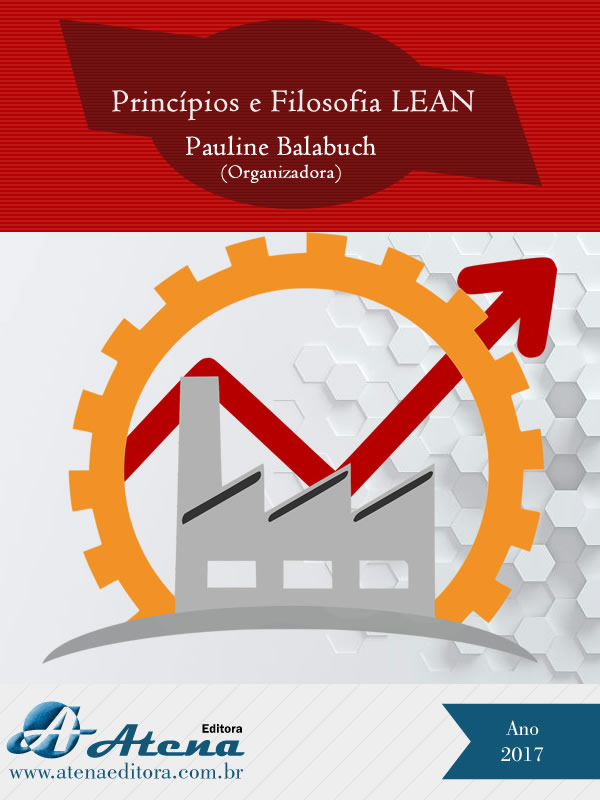
APLICAÇÃO PRÁTICA DE UMA ABORDAGEM DO LEAN OFFICE
O problema de pesquisa deste trabalho é de origem prática e refere-se
aos atrasos no encaminhamento de informações técnicas a clientes de uma
organização prestadora de serviços, no caso, uma distribuidora de combustíveis. O
objetivo aqui é alcançar a redução e a eliminação de desperdícios no fluxo de valor
de informações e conhecimentos. Como método de pesquisa tem-se uma pesquisaação. Uma investigação detalhada do problema prático viabilizou a utilização da
abordagem do Lean Office proposta por Tapping, Shuker e Shuker. A abordagem foi
implementada no caso prático estudado e obteve-se, como principais melhorias, a
redução do tempo de atravessamento (lead time) e o aumento da porcentagem de
completeza e de precisão (complete and accurate percentage). O efeito prático
destas melhorias foi confirmado com resultados obtidos após a implementação: os
dados mostram que o problema prático foi solucionado, no caso, os clientes não
tiveram mais problemas de atrasos na entrega das informações técnicas
relacionadas aos combustíveis. Deste modo, concluiu-se que a abordagem
proposta por Tapping, Shuker e Shuker viabilizou a redução e a eliminação de
desperdícios no fluxo de valor de informações e conhecimentos no processo de
negócio em questão.
APLICAÇÃO PRÁTICA DE UMA ABORDAGEM DO LEAN OFFICE
-
DOI: Atena
-
Palavras-chave: Lean Office; Lead Time; Caso Prático.
-
Keywords: Lean Office; Lead Time; Practical Case.
-
Abstract:
The research problem of this work is of practical origin and refers to the
delays in forwarding technical information to customers in a service organization, in
this case, a fuel distributor. The goal here is to achieve the reduction and
elimination of waste in the value stream of information and knowledge. As research
method we have a Research-Action. A detailed investigation of the practical problem
made possible the use of the Lean Office approach proposed by Tapping, Shuker
and Shuker. The approach has been implemented in practical case study and was
obtained as major improvements, reduction of lead-time and the increasing of
completeness and accurate percentage. The practical effect of these improvements
was confirmed with results obtained after implementation: the data shows that the
practical problem has been solved, in the case, customers had no more problems of
delays in the delivery of technical information related to fuel. Thus, it was concluded
that the approach proposed by Tapping, Shuker and Shuker enabled the reduction
and elimination of wastes in the value stream of information and knowledge in the
business process in question.
-
Número de páginas: 15
- Cristiano Roos
- Lucas Gonçalves Pagnossin


